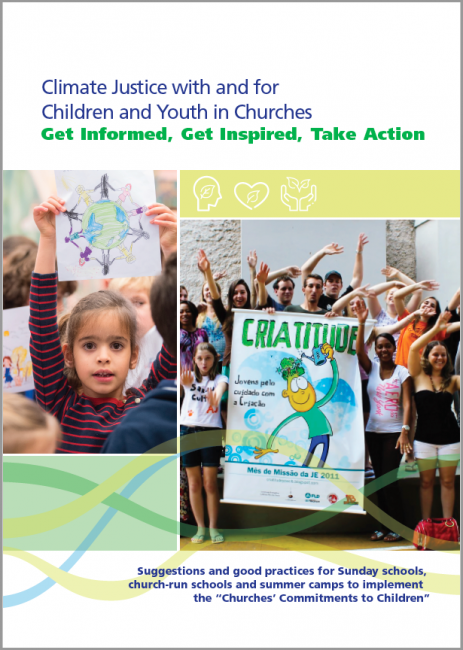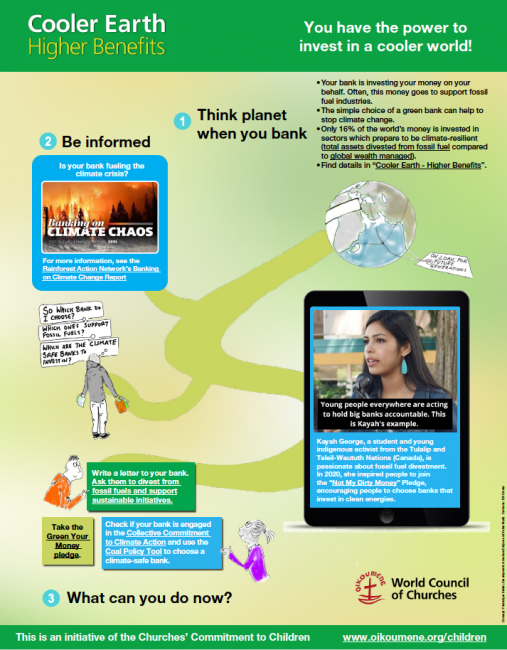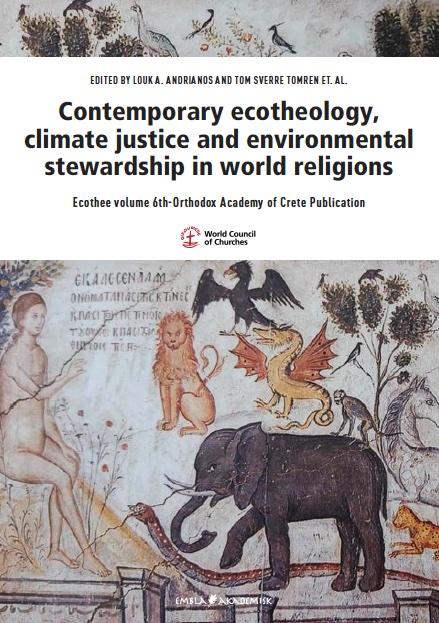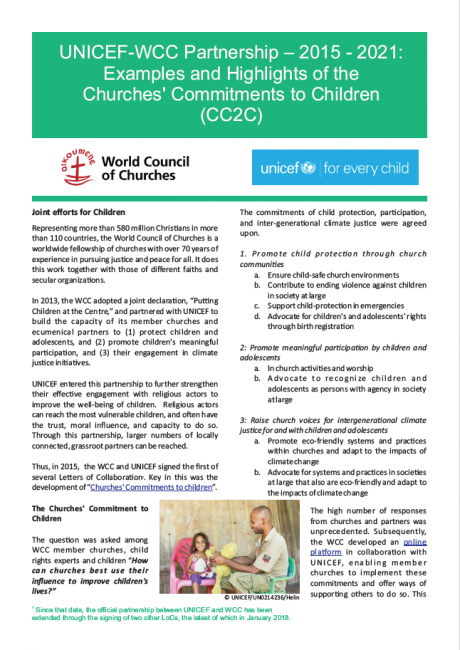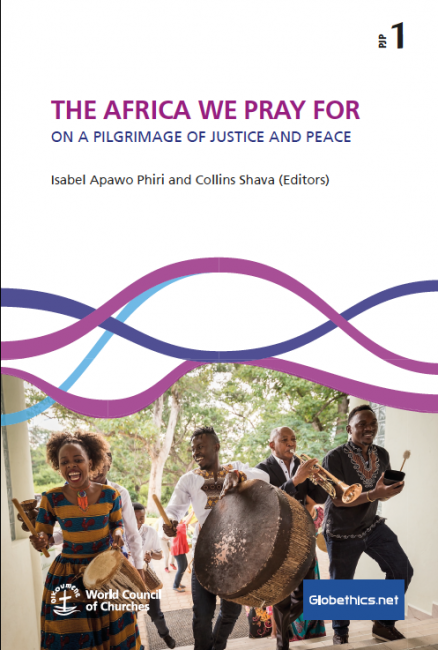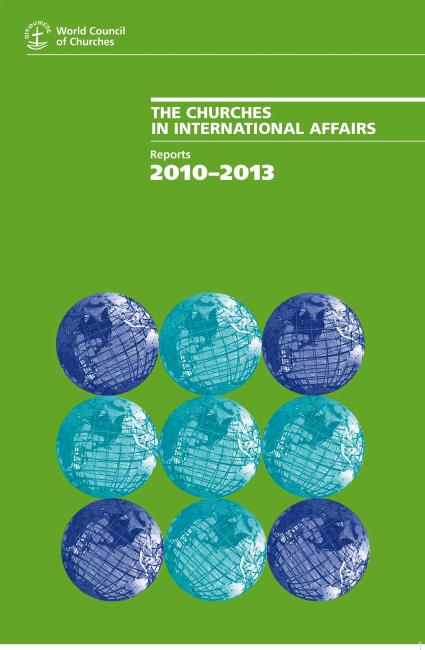Displaying 1 - 20 of 29
Get Informed, Get Inspired, Take Action
09 November 2022
Climate Justice with and for Children and Youth in Churches
Get Informed, Get Inspired, Take Action
09 November 2022
Walk the Talk
A Toolkit to Accompany the "Roadmap for Congregations, Communities and Churches for an Economy of Life and Ecological Justice"
09 November 2022
Walk the Talk
A Toolkit to Accompany the "Roadmap for Congregations, Communities and Churches for an Economy of Life and Ecological Justice"
09 November 2022
Kältere Erde Größere Vorteile: Poster
Actions by those who care about children, climate and finance.
27 September 2022
Cooler Earth - Higher Benefits (Third Edition)
Actions by those who care about children, climate, and finance
16 August 2022
De las palabras a la acción
Conjunto de herramientas para acompañar la «Hoja de ruta para las congregaciones, las comunidades y las iglesias para una economía de vida y una justicia ecológica»
22 December 2021
Contemporary Ecotheology, Climate Justice and Environmental Stewardship in World Religions
Ecothee Volume 6th-Orthodox Academy of Crete Publication
19 December 2021
Planète plus fraîche Plus de bienfaits: Affiche
Actions de ceux qui se soucient des enfants, du climat et de la finance.
05 November 2021
Walk the Talk
A Toolkit to Accompany the "Roadmap for Congregations, Communities and Churches for an Economy of Life and Ecological Justice"
31 August 2021
Ecumenical International Youth Day 2021 Event Toolkit
Young People and Climate Justice
06 August 2021
Cooler Earth Higher Benefits: Poster
Actions by those who care about children, climate and finance.
16 July 2021
Climate Justice with and for Children and Youth in Churches
Get Informed, Get Inspired, Take Action
20 November 2020
Climate Justice with and for Children and Youth in Churches
Get Informed, Get Inspired, Take Action
25 October 2020
